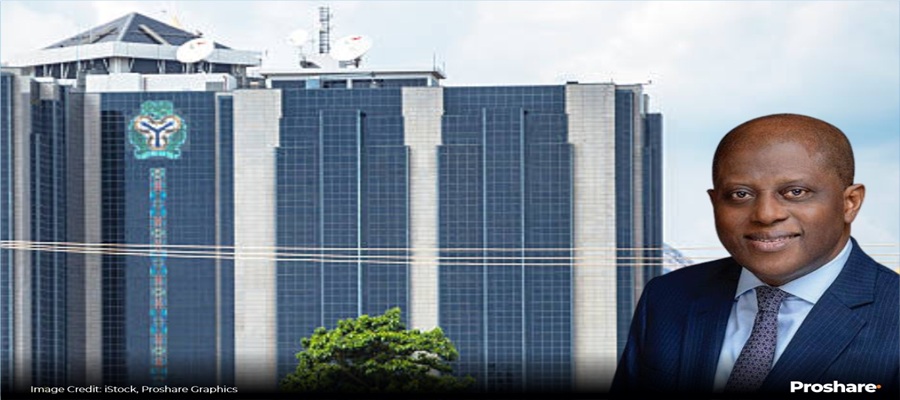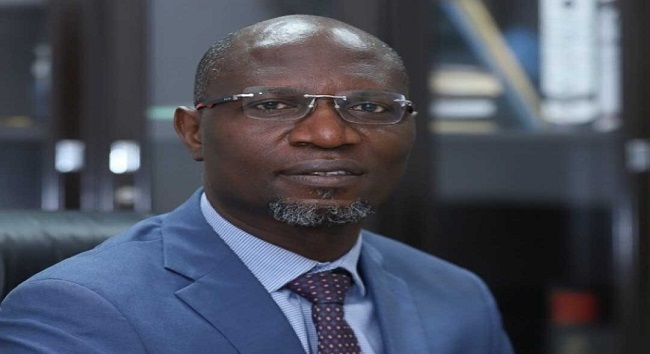E-Financial
Judiciary, Banks Chase Shadows as another Banking Crisis Looms

Nearly ten years ago the Central Bank of Nigeria conducted a deep assessment of the country’s banks.
The 2009 exercise exposed large-scale fraud committed by a number of CEOs.
To save the banking system from collapse, the Central Bank (CBN) took over a number of institutions and spent billions saving others.
According to Quartz, in addition, criminal charges were laid against five CEOs for offences which included fraud, market manipulation, concealment and grant of credit facilities without adequate security.
Only one case has been prosecuted successfully. The others appear to be stuck in an unending cycle of dismissals, appeals and re-trials.
The bank saga and the failure to bring the bank executives to justice underscore the fact that the Nigerian justice system isn’t working.
Quartz, said that the problems – the subject of a great deal of discussion – range from judicial corruption to a lack of judicial independence to delays in the justice system.
The cases of the bank executives provide a useful case study through which to examine the weaknesses of the Nigerian judicial system.
These include the capability of prosecutors and the ability of the court system, including judges, to actually bring cases to fruition. This is particularly true in corporate cases which are often difficult to prosecute under the criminal law.
Judicial Corruption
According to Quartz, the fact that Nigeria has a number of corrupt judges is common knowledge in the country. Over the years, there have been various allegations of corruption in the judiciary.
In 2013, two High Court judges were suspended and recommended for retirement by the National Judicial Council for misconduct bordering on corruption.
Similarly, in 2016, a raid carried out by the Department of State Services revealed that cash worth USD$800,000 had been found in the homes of senior judges suspected of corruption.
Judicial corruption reduces public confidence in the country’s justice system. This means that suspected incidents of directors’ misconducts are less likely to be reported given the prevailing belief that justice is unlikely to be served.
Similarly, it can affect the attitude of investigators and prosecutors who might have less incentive to investigate and prosecute cases diligently.
While it would clearly be an exaggeration to accuse all judges in Nigeria of corruption, it is reasonable to conclude that corruption remains a problem. But since none of the judges involved in the trial of the bank executives have been accused of corruption, it’s necessary to look to other causes for the failure to bring the bank executives to book.
Judicial delays
One of the main problems in the bank executive cases has been endless delays in the judicial process. The trials’ time line tells the story.
 Godwin Emefiele, CBN Gov
Godwin Emefiele, CBN Gov
Criminal proceedings started in 2009. About six years later, in 2015, the Court of Appeal struck down the case against two of the executives on the basis of lack of jurisdiction of the trial court.
A declaration of lack of jurisdiction means that the court lacks the power to try the particular case. In itself this isn’t a bad development. After all, compliance with relevant rules on jurisdiction is essential to ensuring justice is done. But the fact that it took six years for this decision to be reached highlights severe delays in Nigeria’s court system.
Following the Court of Appeal’s decision, the High Court, in deference to the superior court, dismissed the pending case against the third bank executive.
In another turn of events, a year later, in 2016, the Supreme Court overturned the Court of Appeal’s decision and ordered a re-trial of the bank executives. This meant that, nearly 10 years after the initial trial, a fresh trial was started, and with it room for further appeals.
There is currently no end in view. While appeals and cross appeals are inevitable parts of litigation, the lengthy time spent on them is not.
This delay has been attributed to several factors. Initially, the trials suffered from several unwarranted adjournments at the request of the defence lawyers.
Another weak spot has been the prosecuting authority. The unit responsible for prosecuting these kinds of cases, The Economic and Financial Crimes Commission, has been severely criticised for its inefficiencies.
To worsen the problem, the trial judges were changed several times. One judge was elevated to the Court of Appeal while a few others were transferred to different divisions of the court leading to a fresh trial each time.
These issues significantly delayed trial proceedings.
Potential inequality
Another question to consider is whether the failure to successfully prosecute the directors is a reflection of the difference in the treatment of high-profile offenders versus ordinary Nigerians.
Cecilia Ibru, the only bank executive who was convicted, was sentenced to just six months in prison and required to forfeit shares and other assets worth over USD$1.2 billion.
Compare this with the case of David Olugboyega, an armed thief, who was sentenced to death after being found guilty of a £50 robbery.
Granted that armed robbery carries the death penalty, however, it seems that carting away millions of money should attract a stiffer penalty.
In addition, rich offenders can afford well skilled lawyers who can devise different strategies to delay, or prevent, successful prosecution. Poor offenders don’t have this benefit.
The ConversationThe recently introduced Administration of Criminal Justice Act of 2015, which aims to promote speedy dispensation of justice, promises to improve the situation. Time will tell.
E-Financial
Zenith Bank Top Nigerian Bank Pick Ahead of GTCO, AccessCorp

Renaissance Capital Africa (Rencap) has named Zenith Bank Plc its top conviction pick among Nigerian banks, ahead of GTCO and AccessCorp, in a fresh research report highlighting the lender’s robust balance sheet and dividend potential despite sector headwinds.

Zenith Bank
The comprehensive review of the Nigerian banking industry notes that Zenith’s current market valuation lags its improving fundamentals, even as the NGX Banking Index posts strong gains recently.
Rencap upgraded Zenith from HOLD to BUY, lifting its target price by 96 per cent based on a lower risk-free rate from falling government bond yields, refined beta estimates, and expectations of cleaner assets post-forybearance resolutions.
Balance Sheet Strength Drives Outlook
Analysts project challenges to earnings growth from anticipated Central Bank of Nigeria (CBN) rate cuts but foresee higher dividend payouts from resolved forbearance and single obligor loan (SOL) exposures alongside rising cash profits.
“Although we expect banks to face challenges in growing earnings… the balance sheet clean-up… will support higher dividend payouts relative to prior years,” the report states, ranking Zenith first, followed by GTCO and AccessCorp.
Key positives include loan write-offs that bolstered asset quality, enabling sustainable growth amid financial system reforms.
Dividend Recovery in Focus
Sector profitability from 2023-2024 was inflated by unrealised foreign exchange gains, which regulations barred from cash dividends, capping payouts despite headline profits.
Zenith historically led payout ratios in 2021-2022 via strong cash generation and capital discipline; Rencap expects a rebound as pressures ease, attracting income-focused investors.
Tier-1 Leadership Reinforced
Zenith Bank recently topped Nigeria’s tier-1 capital rankings for the 16th straight year, per The Banker magazine (Financial Times), affirming its resilience and positioning for long-term value creation.
E-Financial
Here Are Nigerian Banks That Have Secured Their Licences


CBN
- Access Bank Plc
- Fidelity Bank Plc
- First Bank of Nigeria Ltd
- Guaranty Trust Bank (GTBank)
- United Bank for Africa (UBA)
- Zenith Bank Plc
- FCMB (First City Monument Bank) – currently pushing to raise additional capital to secure its international licence.
- Wema Bank
- Standard Chartered Bank (Nigeria)
- Citibank Nigeria
- Stanbic IBTC Bank
- Sterling Bank
- Globus Bank
- Premium Trust Bank
E-Financial
SEC Hikes Minimum Capital Requirements for Market Operators After a Decade

The Securities and Exchange Commission (SEC) has revised the minimum capital applicable to all categories of regulated capital market entities after 10 years.

The minimum capital review, according to the SEC, is informed by the need to strengthen market resilience, enhance investor protection, align capital adequacy with the evolving risk profile of market activities, and ensure that regulated entities possess sufficient financial capacity to discharge their obligations in a sustainable manner.
“The revised Minimum Capital framework seeks to: enhance the financial soundness and operational resilience of market operators; align capital requirements with the scope, complexity, and risk exposure of regulated activities; promote market stability and systemic risk mitigation; and support innovation and orderly development of new market segments, including digital assets and commodities markets,” SEC said in a January 16 circular to market operators.
The SEC circular was sent to all entities regulated by the Commission, including but not limited to core and non-core capital market operators; market infrastructure institutions; capital market consultants; financial technology (FinTech) operators; Virtual Asset Service Providers (VASPs); and Commodity market intermediaries.
All affected entities are required to comply with the revised Minimum Capital Requirements on or before June 30, 2027, the circular said.
“Entities that fail to meet the prescribed requirements within the stipulated timeline shall be subject to appropriate regulatory sanctions, including suspension or withdrawal of registration, as may be determined by the Commission,” SEC said.
Tier-1 Portfolio Managers (Full Scope) involved in the management of Collective Investment Schemes (CIS) and Alternative Investment Funds (Private Equity, Venture Capital, Infrastructure Funds etc) above N20 billion Net Asset Value (NAV), or discretionary and Non-Discretionary Private Portfolio Management Services above N20 billion Assets under Management (AuM), or exposure to foreign instruments up to 40 percent of the NAV are now required to have a minimum capital of N5 billion as against N150 million.
“Any Fund and Portfolio Manager with NAV/AuM of more than N100billion should have a minimum of 10 percent of the NAV/AuM as capital,” SEC added.
For the Tier-2 fund/portfolio managers (Limited Scope) who are in the business of management of Collective Investment Schemes with limited pooled fund creation of not more than 10 times the required capital (N20 billion) on Net Asset Value (NAV), or discretionary and non-discretionary private portfolio management services of not more than N20 billion, or those exposure to foreign instruments of not more than 20 percent of the NAV, now require N2 billion as minimum capital as against low of N150 million.
Likewise, broker-dealers whose services include: client execution, proprietary trading, margin/securities lending and advisory services no longer require N300 million minimum capital to operate but N2 billion.
The SEC said the minimum capital review from 2015 low is in line with its mandate under the Investments and Securities Act 2025 to regulate and develop the Nigerian capital market.
Also, Tier 1 issuing houses who do non-interest finance services, advisory & arrangement services but no underwriting now require N2 billion as against N200 million; while Tier 2 –issuing houses with underwriting and offers a ‘one-stop-shop’ for issuers, provides underwriting services, and renders advisory and product development services require N7 billion minimum capital for this business as against N200 million.
Also, the minimum capital requirement for brokers (client execution only) has been jacked up from N200 million to N600 million, while that of dealers (proprietary trading only) has been moved from N100 million to N1 billion.
Broker-Dealers’ (client execution, proprietary trading, margin/securities lending and advisory services) has been raised from N300 million to N2 billion, while Sub-Brokers’ (Digital) from N10million to N100million; Sub-Broker (Corporate) has been increased from N10million to N50 million. Also, sub-brokers’ (Individual) now need N10 million minimum capital for the business as against N2 million while inter-dealer brokers require N2 billion as against N50 million.

 E-Financial2 days ago
E-Financial2 days agoSEC Hikes Minimum Capital Requirements for Market Operators After a Decade

 Telecom2 days ago
Telecom2 days agoVodacom Crowned Africa’s Top Employer 3rd Year Running on Innovation, Ethical AI

 Telecom2 days ago
Telecom2 days agoStudy Shows Blocks in Telegram are Pushing the Underground Out

 News2 days ago
News2 days agoNigeria Off EU High-Risk Money Laundering List in Major Financial Win

 News2 days ago
News2 days agoNGX Unveils Net-Zero Plan for Greener Capital Market

 Telecom2 days ago
Telecom2 days agoGalaxy Backbone Marks Two Decades of Powering Nigeria’s Digital Evolution

 Telecom2 days ago
Telecom2 days agoGalaxy Backbone Marks 20 Years, Tops FG Website Scorecard

 Telecom42 minutes ago
Telecom42 minutes agoMTN CEO Toriola Hails Nigeria’s Telecom Transformation at MIPAD
















